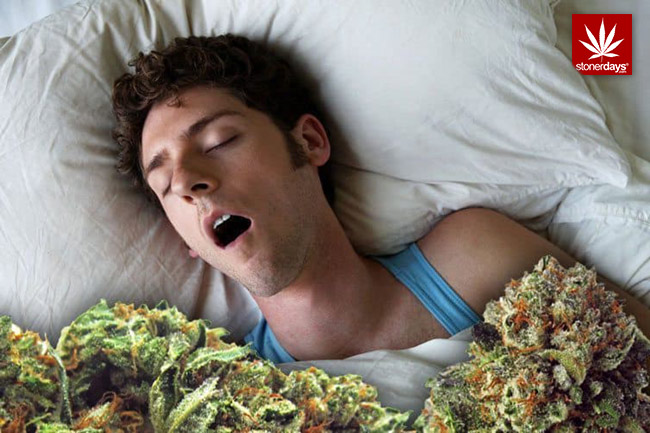Everyone cherishes a good full night’s sleep but it’s becoming a rare phenomenon for most people. Around 50 to 70 Americans have some sort of chronic or acute sleep disorder. Most don’t get even 6 hours of sleep let alone a doctor’s recommendation of 7-8 hours.
Anxious thoughts, discomfort from injuries and diseases, stress about future events, and work pressure keep us tossing and turning in bed. Not managing it on time can lead to agitation, energy loss, heart disease, obesity, and more.
From meditation to melatonin supplements, there are plenty of options to improve your sleep, but CBD products are what most people use these days. It’s believed that CBD has natural calming and healing effects which can help you to doze off every night without any hassle. Well, is it a good idea to buy CBD gummies for sleep? Are they safe? Let’s find out.
What exactly is CBD?
Cannabidiol, commonly known as CBD, is a naturally occurring compound found in cannabis sativa plants. It’s known for strong nerve-calming, pain-curbing, appetite-stimulating, and sleep-enhancing effects. You can buy it in the form of gummies, oils, capsules, and even lotions and snacks.
Some experts believe that it’s much better than opioid-based pain medications because of its nonaddictive nature. Also, it hardly causes any major side effects, even when taken in very high doses. CBD has strong neuroprotective properties, which makes it great for seizures, Parkinson’s, Huntington’s, and other neurological conditions.

More research is required on it, but some initial studies show that CBD can also be effective in the treatment of ADHD and PTSD. Thanks to the 2018 farm bill, it’s now legal in almost all American states as long as THC (another cannabinoid with strong intoxicating effects) levels are capped at 0.3%. You can also buy zero THC and CBD oils known as broad spectrum.
IS CBD safe & effective for sleep?
Yes, CBD is safe to use for sleep. It may increase both the depth and overall quality of your sleep. Some studies show that CBD can make you fall asleep faster, and stop you from tossing and turning and frequently waking up throughout the night.
Let’s look at some of the studies in detail to get better idea.
Study 1
Published in 2019: This study followed 72 adults at a mental health clinic who received CBD treatment. Patients took 25-175mg of CBD daily. Most took it in the evening before bed. The researchers tracked their sleep and anxiety levels for 3 months.
After the first month, 66.7% of patients reported better sleep. However, while sleep scores improved quickly in the first month, they fluctuated over time. The study showed CBD was well-tolerated, with few side effects like tiredness.
Study 2
Published in 1981: This groundbreaking early study examined 15 people with insomnia. Participants received either 160mg of CBD, a sleeping pill, or a placebo before bed.
The results showed that people taking CBD slept significantly longer and reported waking up less during the night compared to those taking the placebo. Also, participants reported feeling more rested in the morning with CBD. While small, this study was one of the first to show CBD’s potential in improving sleep quality.
Study 3
Published in 2014: This study focused on 4 Parkinson’s disease patients who had sleep behavior disorder (acting out dreams during sleep). Participants received 75mg of CBD daily for 6 weeks.
The researchers found that CBD significantly decreased the frequency of sleep disturbances, with patients experiencing fewer episodes of physical movement during sleep. All participants reported feeling more refreshed upon waking.
Study 4
Published 2021: This study tracked 409 people who used a CBD-rich treatment for insomnia. Participants took various forms of CBD (oils, capsules) over 2 years.
About 60% of users reported improved sleep quality, and most of them reported improvement within the first 30 days. It was a consensus among this group that CBD helped them fall asleep faster and stay asleep longer.
So yeah, based on the above-stated studies it’s quite fair to say that CBD is effective for sleep hygiene. As for the safety aspect, in almost all published data it’s a common observation that CBD doesn’t cause any major side effects.
Max to max it may make you feel a bit dehydrated and fatigued, but this gets normal once your body gets used to the compound.
How exactly does CBD improve sleep?
Scientists still don’t understand CBD’s exact working mechanism when it comes to sleep improvement but there are various plausible theories. First, it brings your anxiety and pain levels down which are a major cause of poor sleep among people from all walks of life.
Next, it reduces the level of cortisol produced by the body. Lower cortisol means less stress hence better sleep. Another major reason could be CBD’s positive impact on our body’s Endocannabinoid system which is directly responsible for managing our body’s circadian rhythm or sleep cycles.
It also works with GABA receptors and increases its effects, which leads to better mood and less noisy head which is often most crucial for a good restful sleep. CBD isn’t like a typical sleep medication that knocks you out.
Instead, it helps create the right conditions in your body for natural sleep. That’s why some people find it works better when taken regularly rather than just once.
Conclusion – Is CBD safe to use for sleep?
To sum it up, Yes, it’s completely safe to use CBD for sleep. It’s nonpsychoactive, so there’s no risk of getting high or dizzy. Plus, in many studies, it’s observed that CBD is well tolerated by the human body, even at doses as high as 1500mg.
Most home-use CBD products will not have more than 25-50mg CBD per serving, so there’s no need to worry. However, as a first-time user, you may feel a slight cotton mouth and energy loss, but it goes away with time.
It’s best to increase your water intake to avoid this. Also, try to take your serving with dinner because with food cannabinoid absorption in the body gets better. Lastly, if you do decide to buy CBD gummies for sleep, make sure to get them only through reputed sites like Colorado Botanicals.


